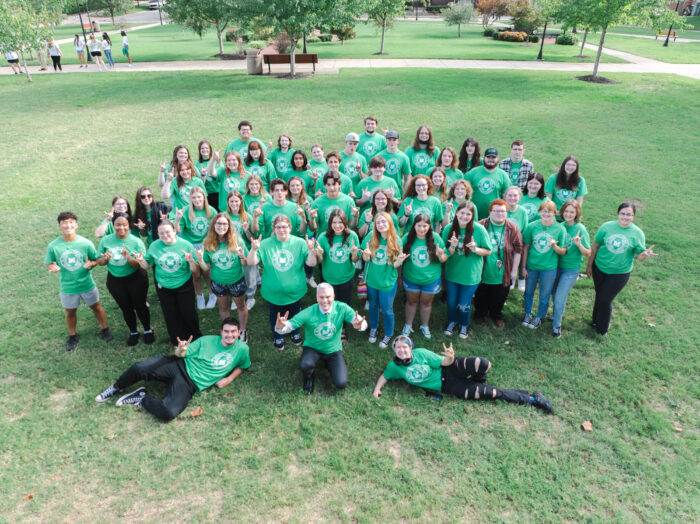In its second year, Marshall University’s “Marshall For All’ project allows participating students to complete a four-year bachelor’s degree without accruing any debt.
As America’s student loan debt percentage continues to soar, Randy Yohe spoke with Marshall For All Project Director Jennifer Jimison on how the program works.
This story has been lightly edited for clarity.
Yohe: “Marshall for All. Marshall Forever” enables students to graduate debt free in four years. That almost sounds too good to be true. What’s the whole philosophy behind this program?
Jimison: It’s an initiative that Brad Smith started when he became president of Marshall University. His goal is to assist students to graduate with their undergraduate degree in four years with zero loan debt. That’s using scholarships, grants, any gifted aid that’s available, and then “Marshall For All” will kick in and pay any balance that’s due.
Yohe: The first cohort began a year ago with 100 students. How were they selected? I understand there’s kind of a pool, a random selection process.
Jimison: There’s a random selection, and it’s a third party pool. The students that had a FAFSA on file, they had to be fully admitted and signed up for orientation, and then we just ran the list. We took the first 100 and sent out the invitations to be a part of the program. As students opted out or decided not to come, or other things that happened, we went to the alternate list and just filled those spots.
Yohe: The students and their families, they have to put some, you might say sweat equity, some skin in the game for this as well, right?
Jimison: Yes. It’s based on their EFC, which is the estimated family contribution that comes from the FAFSA. So if they have a zero EFC, then that means that they’re Pell eligible. Then they have other aid that’s eligible that kicks in and pays that equity, the parental equity
Yohe: The student has to fulfill some tasks as well, correct?
Jimison: Correct. They have an opportunity to do work-study on campus. Not everyone gets placed or is eligible to do work study, but they get credit for work that they do off campus, working a summer job, at the mall, mowing grass. They have to do internships when they get to the junior level, and we’ll assist them with that. Career Services helps a lot with that. They have a career class that they have to take as freshmen, and then they have to do a financial literacy program during their sophomore year.
Yohe: Do they have to keep a certain grade point average?
Jimison: We wanted to keep above a 3.0 if at all possible. But, anything above a 2.0 is acceptable, and they can continue on to the program. And then we have the “Fifteen to Finish” element. We don’t require it, but we encourage students to take 15 hours per semester so that they can graduate within four years.
Yohe: Are these first 100 “Marshall for All” students being monitored, being helped, shepherded, and so on?
Jimison: Yes. We have tutoring and we have student support and there are wraparound services to help them. We have a counseling service. All the student services that Marshall has available are available to them.
Yohe: How are they doing?
Jimison: They’re doing great. Regarding retention, we had eighty that returned from the first cohort, that’s a little bit above the retention rate for the entire class of first time freshmen. The first class is now mentoring the second cohort of 100 that started this fall. Last year was our test group. We’re working now on scaling it, because President Smith would like to have every student in the “Marshall for All, Marshall Forever” program. The plan is that by 2037, Marshall’s 200th anniversary, every student graduates debt free.
Yohe: And there’s no requirement that they have to establish a career here in West Virginia?
Jimison: No. it’s encouraged, but it’s not a requirement.


























